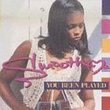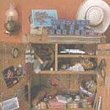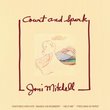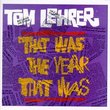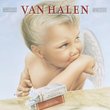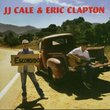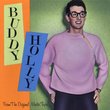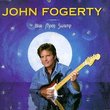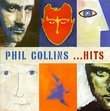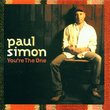| All Artists: Randy Newman Title: Trouble in Paradise Members Wishing: 5 Total Copies: 0 Label: Reprise / Wea Release Date: 10/25/1990 Genres: Folk, Pop, Rock, Classic Rock Styles: Singer-Songwriters, Soft Rock, Album-Oriented Rock (AOR) Number of Discs: 1 SwapaCD Credits: 1 UPCs: 075992375528, 075992375542 |
Search - Randy Newman :: Trouble in Paradise
 | Randy Newman Trouble in Paradise Genres: Folk, Pop, Rock, Classic Rock
He's written some of the thorniest, darkest vignettes ever tucked into the verses and chorus of a pop song, but Randy Newman's greatest commercial successes have come with his most ephemeral material. "Short People" was... more » |
Larger Image |
CD DetailsSynopsis
Amazon.com He's written some of the thorniest, darkest vignettes ever tucked into the verses and chorus of a pop song, but Randy Newman's greatest commercial successes have come with his most ephemeral material. "Short People" was a throwaway, albeit a terrific one, but it catapulted him onto pop charts and generated controversy among dim-bulbs who didn't realize he was kidding. Dwarfing that hit (pun intended) was "I Love L.A.," which has become an anthem despite the squalor of its imagery and Newman's hilarious inclusion of some of the ugliest thoroughfares imaginable in his litany of glorious local streets. Trouble in Paradise thus derives much of its familiarity from this one romping gag, yet its best songs tilt toward Newman's darker side, none more so than "Christmas in Capetown," which reconstructs the holiday through the eyes of an Afrikaner racist. Ho, ho, ho. --Sam Sutherland Similar CDs
Similarly Requested CDs
|
CD ReviewsNewman's cheery view of 1980s American culture... ewomack | MN USA | 11/20/2004 (4 out of 5 stars) "Newman makes a surprising claim in "Ragtime's" CD 2002 issue booklet. Referring to "Trouble in Paradise" he says "I think that's my best record. Not many others do, but I do." Newman then credits his film score composition for vastly improving his pop albums. This may sound puzzling coming from the man responsible for "12 Songs", "Sail Away", and the amazing "Good Old Boys". When speaking of Newman's accomplishments, "Trouble in Paradise" rarely receives effervescent laudations. The album actually seems mostly forgotten even though it made #67 on Rolling Stone's "Best Albums of the 1980s" list. Newman's career took a turn in 1977 that led to 1983's "Trouble in Paradise". Newman's "Little Criminals" began the divergence from the heavily orchestrated acoustic folky sound of his 1960s - 1970s work to the more electronic sounds of the 1980s. True, a lot of this reflects the trends of the time, and maybe Newman had to follow the scene from necessity, but the trends blare like neon in this album. "Trouble In Paradise" simply sounds like a 1980s album. The synthesizer sounds and production scream of the era. The song "Miami" was even featured on an episode of "Miami Vice" (1986's "Trust Fund Pirates", episode #043; yes, anything can be found on the internet). Regardless of the sounds and production values, "Trouble In Paradise" contains some great Newman. Arguably, it vastly improves on 1979's "Born Again". "I Love LA" starts off the album on Newman's typical tongue-in-cheek-but-sounds serious note. The video received almost constant MTV airplay, but the song didn't come close to "Short People's" chart status. "Christmas In Capetown" explores a nasty 1980s theme: apartheid in South Africa. This time the tale gets told from the point of view of one of those who "went along with the status quo" of the time. It's probably the album's best song. "My Life Is Good" probably qualifies as the album's 2nd best song. The lyrics comprise a rant (of a person who has a little too much of the spoiled good life) to a teacher who tries to question him. His rebuttal? "My life is good you old bag!" Some classic haunting Newman ballads also dot the album. "Same Girl", "Real Emotional Girl", and "Song For The Dead" prove that Newman hadn't completely abandoned his earlier style. The remaining songs, apart from the very obvious hit grope "The Blues" (even Paul Simon shows up with rather mixed results), range from great to simply good Newman. The lesser songs typically get saved by their lyrics (e.g., "I'm Different" is very funny even if it's not a great song). The lyrics in general, along with the album's title, explore the ugly side of paradise. Broken cities, racism, neuroticism, sexism, greed, obstinance, date rape, poverty, self-importance, and people who have trouble with change. "Trouble In Paradise" is Newman's portrait of 1983 America. The portrait seems to resemble Dorian Gray and Goya's "The Family of Charles IV". Trouble in Paradise, indeed. "Trouble In Paradise" and 1988's "Land of Dreams" completely exhaust Newman's 1980s pop album output. By 1983 Newman found himself well entrenched in the Hollywood filmscore scene. Pop albums became something he did between more lucrative film music, as the grand total of 2 albums from 1980-1989 attests. This trend continued into the 1990s ("Faust" and "Bad Love" were Newman's only 1990s non soundtrack releases). Still, the albums he did release make up for the empty years. After all, two great albums a decade beats the pants off of 10 crappy albums a decade." A Big Nasty Redhead At My Side... M. Packham | Perth, Western Australia Australia | 11/30/2002 (4 out of 5 stars) "Trouble In Paradise veers away from the more 'traditional' Randy Newman songs, i.e., the trademark 'shuffles' and, well, variations on shuffle tempos. Here he takes a few more risks, shakes things up a bit, and deliberately works outside of himself to come up with a whole new sound. The good news is that Trouble In Paradise contains the best songs of Newman's entire catalogue; conversely, it also contains some of his worst. 'I Love LA', the opener, is without a doubt one of the best songs Newman has ever written. A twisted love paean to the sunny city itself, Newman juxtaposes an upbeat rock track to some suspect lyrics, singing of such unsavoury locales as 'Santa Monica Boulevard' and 'Sixth Street' while a chorus echoes "we love it!"'Christmas in Capetown' is a brilliant song, again one of his best. It captures the anxiety and hostility of an Afrikaaner racist as he laments the state of South Africa, at the same time propagating the gap between blacks and whites with his racist overtures. 'My Life is Good' is excellent, as well as very funny. Newman assumes the role of an upper-class husband rocked by the news of his son's misdemeanours at a "private school" which "many famous people send their kids" to, he brags. The reference to Bruce Springsteen ("Rand, I'm tired... why don't YOU be the boss for a while?") and the line following that one (which can't be mentioned), is the funniest thing Randy's ever produced.The remaining excellent songs are 'Take Me Back', 'Real Emotional Girl', 'Same Girl' and 'Mikey's'. Conversely though, 'The Blues' is offensive in that it ridicules kids who take solace in music (that's hitting below the belt). Also musically's it's not a very good song. 'I'm Different' is the worst thing Newman's ever written - completely dreadful. 'Song for the Dead' doesn't work, and 'There's a Party At My House' doesn't make the grade either. So one star comes off for those ones.But, barring the four bad tracks, Trouble in Paradise is an incredibly entertaining album that shows us a new side of Randy Newman. Here his songs take a new shape. They're longer, ringing in at an average of four minutes, as opposed to two. The songs also don't sound the same for four minutes - Newman mixes the whole thing up, so verses, choruses and bridges all sound different. Pick up Trouble in Paradise - it's a very underrated Newman album, and, what's more, Newman himself considers it his best." The Master of Rock Noir R. W. Rasband | Heber City, UT | 09/02/2000 (5 out of 5 stars) "This is probably Newman's most enjoyable album, in terms of stinging skepticism and lacerating humor. "I Love L.A." is his great practical joke on the city--thousands ended up singing it at Lakers games, carefully avoiding the line about the "bum down on his knees." "Christmas in Capetown" actually makes you feel pity for a South African racist (while showing the ugliness of apartheid attitudes), in words that it would be impossible for a white artist to use today. "Mikey's" will appeal to every middle-aged dude confronted with the Backstreet Boys. "The Blues" (sung with Paul Simon) sends up self-pity in rock lyrics (while at the same time acknowledging the pain.) "My Life is Good" is a parody of Springsteen and an act of scalding self-criticism. And "I'm Different" may be Randy's greatest song, an exhilarating anthem for misfits everywhere--let's see Eminem top it."
|

 Track Listings (12) - Disc #1
Track Listings (12) - Disc #1